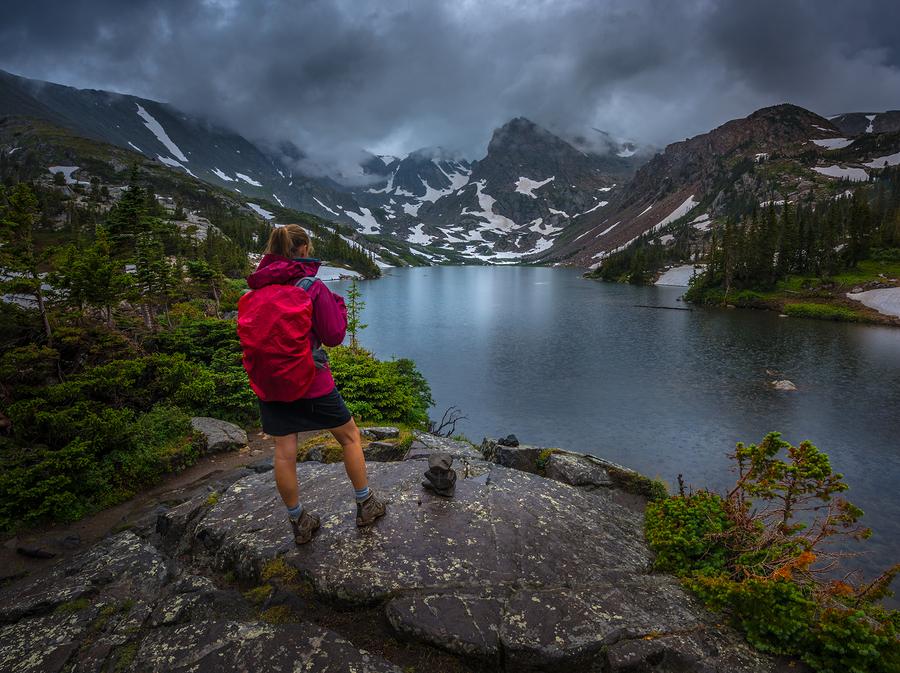 What can backpacking in the mountains teach us about the Transfiguration?
What can backpacking in the mountains teach us about the Transfiguration?
If you’ve ever done some serious backpacking in the mountains, then perhaps you know this difficult truth. It is tougher coming down the mountains than going up. It is always tougher to leave the mountaintop then to reach it. It seems like there are three reasons why…
1) It is the promise of the spectacular that gives energy to your feet on the way up. The beauty, the vista’s – the promise of the amazing sights and perspectives you will see makes it so easy. Going down, nothing new that awaits you. Just life as it used to be. There is no dream to lure you like the peak does…
2) Usually, you are more tired on the way down. You’ve been going all day, and now there is a weariness that sets in for even the most rugged adventurer
3) And perhaps the most important reason is that the footing not as sure on way down as it was on the way up. On the way up you can test the rocks that you put your feet upon. You can grab a tree to pull yourself up. On the way down it is so much more treacherous – easier to slip because you cannot test the road ahead of you…
Make no mistake. What the disciples knew on the mountaintop was a moment of clarity. They could feel the meaning. For a moment, it all made sense- their lives, their futures, their dreams. They saw clearly in Jesus what they had hoped for, what they had tested on the way – a glory that filled their hearts with wonder and awe and fear. But what they felt, what they knew on the mountaintop was going to take the rest of their lives to unpack, the rest of their lives to unfold, the rest of their lives to flower.
Isn’t that always the case? What we learn on the mountaintop will be tested. It will always be tested. What is so real and clear in those peak experiences HAS to be tested. It is in the testing that it becomes real. It is in the testing that we becomes who we are. So:
· It is one thing to fall in love. It is another to stay in love.
· In a moment of bliss, I can confess my undying emotion and love. But, after you’ve hurt me, will I still say the same?
· When what was so real runs up against the scandal of the cross and suffering, can you still believe?
That is the challenge, when what we experience on the mountaintop is tested. At that moment, it either becomes real within us or it dies… Or, as Fr. Gary Braun says: After the ecstasy – the laundry…
Today’s Gospel is all about going down the mountain, back to the place where love becomes real. Back to the places that may not want or accept our love. Back to our homes where our family doesn’t understand, back to our dorms where we’ll be ridiculed for being one of the those church going people. Back to our places of work where dog eat dog makes compassion an obstacle to moving up the corporate ladder.
It is so tempting to stay upon the mountain. Yet, just as Jesus doesn’t allow Peter to erect the three booths, nor will he allow us to stay here in this Sunday morning assembly. For there is work to be done and a testing to undergo… Tell no one of the vision until the Son of Man rises from the dead. Tell no one of the glory until you’ve made sure they’ve understood what the passion and resurrection means – until they have gone back to the valley, back to the places where God needs them to be his love…
Mountaintop moments. Times of great clarity and vision. Times when we suddenly understand who we are and whose we are. They are enough to strengthen for the journey back to the places where our footing is not so secure, where the walking is tough because we are tired, and the promise of love becomes the work of love. The movement from ecstasy to laundry.
Matthew gives us the one hint we need to do that journey well. “When the disciples looked up, they only saw Jesus alone… they only saw Jesus…” May that be true of us as well. No matter what or when or how often we know the mountaintop, may we come down because we see only Jesus, and desire to walk were he walked – to our own death is self giving and sacrifice…
